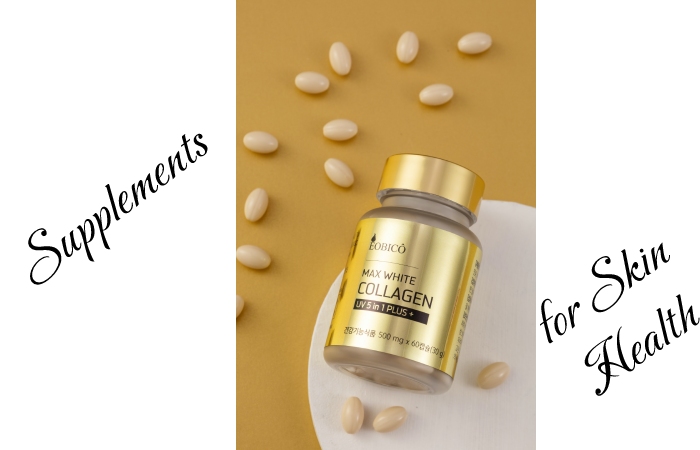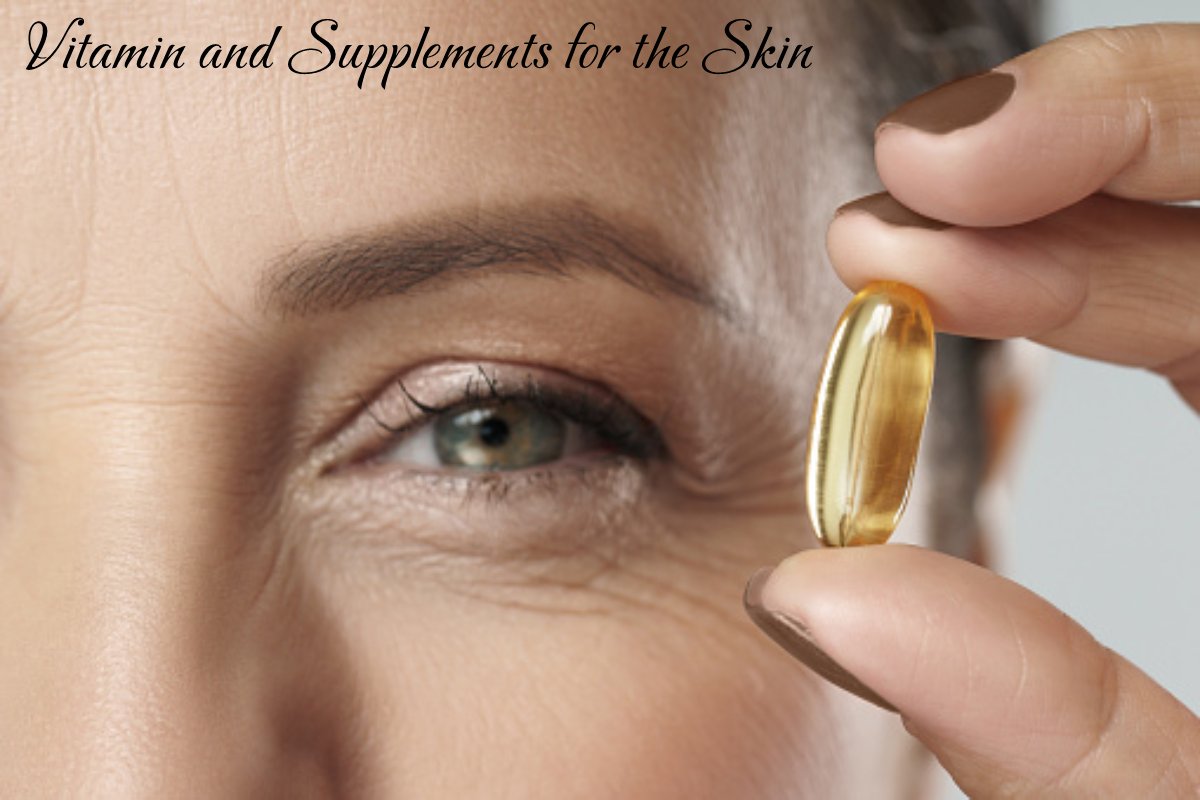Vitamin and Supplements for the Skin: Vitamin D is one of the best vitamins for your skin, along with vitamins C, E, and K. Making sure you get enough vitamins can keep your skin looking healthy and youthful. It could translate to a reduction in dark spots.
Table of Contents
Vitamins for Skin Health
Vitamin A
Our body does not produce vitamin A, so it is necessary to obtain it through our diet. Vitamin A increases the activity of enzymes and favors the division of skin cells (regeneration), improving the appearance of the skin.
Cosmetics containing Vitamin A help improve elasticity and regenerate prematurely aged skin, helping the skin to remain young, smooth, and smooth.
Vitamin E
Vitamin E is a critical element of the structure of the body’s cells and improves our immune system, preventing cell degeneration. Usually, vitamin E is known as the “beauty vitamin.”
Vitamin E is included in cosmetic products to increase the microcirculation of the dermis, providing better nourishment to the tissue, promoting the dermis’s elasticity, and reducing wrinkles. In addition, vitamin E is essential to inhibit inflammation. Reduce scars and provide the body with natural protection against ultraviolet rays.
Vitamin C
The skin is a multifunctional organ, the largest in the body, and its appearance generally reflects the health and effectiveness of its underlying structures. The primary function is to provide a protective interface between the external environment and the individual’s tissues. Protecting it from chemical threats, pathogens, ultraviolet radiation, and even dehydration.
Actual in continuous contact with the external environment, the skin is more damaged than most of our other organs, and it is where the first visible signs of the elderly happen.
Normal skin covers high concentrations of vitamin C, which supports essential and well-known functions, stimulating collagen synthesis. And also aids antioxidant protection against solar radiation-induced photodamage to the skin.
Vitamin C helps even skin tone and reduces the appearance of dark circles. This is ideal for those who are tired of hiding dark circles under their eyes and want to enjoy a younger, brighter, more vibrant appearance.
Vitamin K
Vitamin K is a soothing agent that decongests and relieves the dermis’s redness and irritation and naturally revitalizes the skin. And vitamin K is very effective in treating atopic dermatitis.
Vitamin K includes healing and anticoagulant properties widely used in cosmetic creams. And vitamin K is highly recommended to treat and prevent bruises and also bruises. As it contains properties that improve blood coagulation.
Biotin
Biotin, also known as vitamin B7, contributes to the skin’s beauty since it acts in multiple ways on the skin’s metabolism. Another name for this B-complex component is ‘vitamin H,’ The ‘H’ comes from the German words Haar and Haut, meaning ‘hair and skin.’ For better absorption of biotin. It is recommended to do it through supplements in capsules (the topical route is not very effective).
Biotin works by producing fatty acids that nourish the skin to maintain a clear complexion. It helps manufacture the new prison cell and the normal functioning of the sebaceous glands, resulting in a healthy skin condition. When the outer protective layer of the crust is out of balance, dehydrated skin can manifest.
A deficiency of vitamin H or biotin can lead to health problems, both “internally” and those related to the external appearance of the skin. Among the symptoms that can reflect is dry and itchy skin, although more severe conditions such as acne and psoriasis can also arise. In most cases, supplementation with biotin can correct the problem, improving the skin and even helping to restore a more youthful appearance.
Supplements for Skin Health
Collagen
Collagen is the most overflowing protein in the body, its primary function being to provide support and structure. It finds in different connective tissues, such as skin, bone, cartilage, and tendons. It widely use in the medical and food industries.

Hydrolyzed collagen is the product of enzymolysis of collagen or gelatin, and they use as critical active components due to their various bioactivities, high bioavailability, and good biocompatibility.
Curcumin
Turmeric (Curcuma longa), a spice commonly used throughout the world, has show to have anti-inflammatory, antimicrobial, antioxidant, and also anti-neoplastic properties. Mounting evidence shows that an active component of turmeric, curcumin, can use medically to treat various dermatological conditions.
Astaxanthin
Astaxanthin is a naturally occurring carotenoid found in crustaceans. Such as shrimp and crabs, and fish, such as salmon and sea bream. Astaxanthin’s anti-inflammatory activity has implicate in improving lifestyle-related diseases and also health management based on its antioxidant properties.
Hyaluronic Acid
Hyaluronic acerbic ( sodium hyaluronate) is a natural glycosaminoglycan. A polysaccharide belonging to connective tissue, and also a central component of the extracellular matrix. The tissue that provides structural support to cells.
Evening Primrose Oil
Evening Primrose oil a therapeutic oil extract from the seeds of the Oenothera Biennis plant. Their main chemical components are: Linoleic Acids (Omega-6), γ Linolenic Acid (Omega-6), Oleic Acid (Omega-9), Palmitic Acid and Stearic Acid.
Who should take Skin Care for Vitamin Supplements?
- Sportspeople and athletes since they generally have a greater need for nutrients.
- People expose to stressful environmental influences (work in the sun, fumes, and pollutants).
- Seniors also need supplements because they have a more challenging time absorbing vitamin nutrients from food
- Pathological changes in the skin can be a sign of our lack of vitamins
- People who work for many hours in an air-conditioned space have a greater need for this type of Vitamin.
- During menopause, to supply the lack of vitamins.
Also Read: What is Casein Protein Powder?

